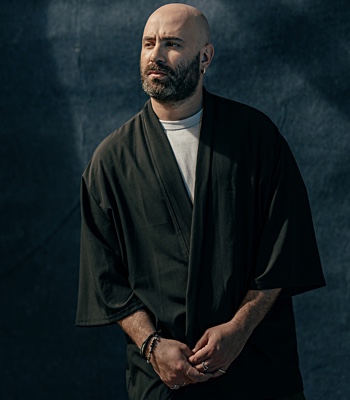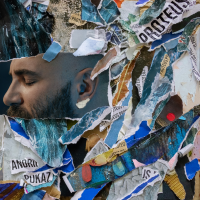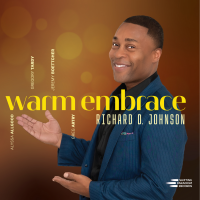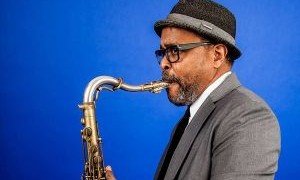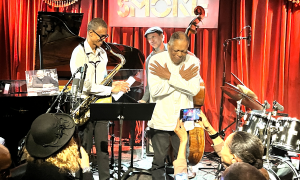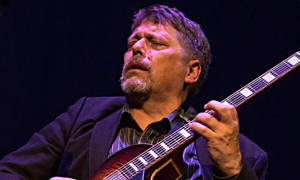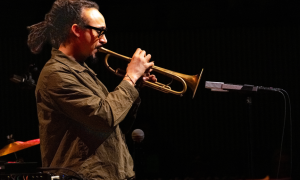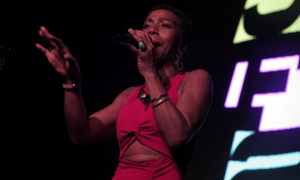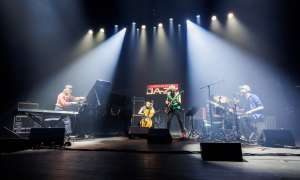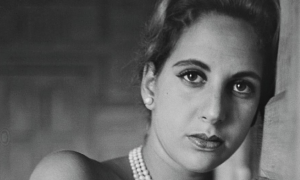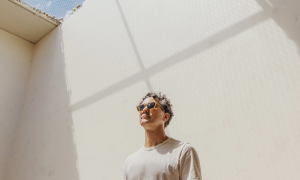Home » Jazz Articles » Live Review » Return of The New Thing Triumph in Krakow
Return of The New Thing Triumph in Krakow
Klub Alchemia
Krakow, Poland
June 16, 2007
Last month, Krakow's Alchemia hosted a night of spontaneous improvisations by the Paris-based free- jazz unit, Return of The New Thing. The unique atmosphere of the club, which is located in Krakow's old Jewish quarter of Kazimierz, has been attracting the cream of the free jazz scene over the last few years. For enthusiasts of adventurous music it is a kind of Mecca, where they can rub shoulders with their idols in an intimate, informal setting.
This was the first visit by the Return of The New Thing unit to Poland, but many of the luminaries who appear at Alchemia end up returning again and again. Chicagoan Ken Vandermark almost views the club as a second home and will be returning in the autumn for a whole week of concerts. Only a couple of weeks before this concert, there was a challenging but passionate performance at the same venue by a trio led by New York trumpeter, Herb Robertson, which featured the mercurial Evan Parker playing only his second concert in Krakow and Spanish pianist, Agusti Fernandez.
Against such exalted company, Return of The New Thing had a great deal to live up to, but they certainly impressed during a set that was full of drama and humor. I first heard about the group last year when Marek Winiarski, record producer and owner of Krakow-based Not Two Records, described them to me as one of the most exciting groups on the European circuit. Winiarski books (and often records) the majority of the jazz groups that appear at Alchemia. Despite his obvious passion for free jazz, his pre-concert announcements often tend to be brief and to the point. On Saturday, however, he provided a lot of background information about the band.
Return of The Thing are English pianist and violinist, Dan Warburton, and three Frenchmen: alto saxophonist, Jean-Luc Guionnet, bassist, Francois Fuchs and percussionist, Edward Perraud. One of the most interesting things about the group is that none of the members come from a pure jazz background. Warburton is a classical composer who collaborated with Steve Reich in New York while serving as a Harkness Fellow. Guionnet studied electro-acoustics theory and is actively involved in experimental film and theater. Perraud is possibly best known for his work with the experimental rock outfit, Shub Niggurath, and Francois Fuchs has worked with Quinte & Sens, an eclectic band whose influences include klezmer music and African rhythms.
The first eponymous album was the result of a 1999 live studio session. Amazingly, this was only the second time the group had played together as a unit. The recording was meant only to be a demo, but they played so well with each other, despite their different musical backgrounds, that it was released by Leo Records. Since then, they have released two additional critically-acclaimed recordings, Traque (Ayler Records, 2003) and Crescendo (Not Two Records, 2005).
The leader of the band, Dan Warburton, kindly agreed to meet me between the first two sets. Considering the intensity of the first set, he was surprisingly relaxed and explained to me that the name of the band was intentionally provocative and in fact hadn't sat at all well with everybody in the band when he had first suggested that they adopt it. He considers it ironic that "four white European males" should be "referencing" a controversial and heavily politicized music created primarily by black Americans almost 50 years ago.
The raw but cerebral music that was dubbed The New Thing certainly created confusion and consternation amongst the establishment in the USA and Britain, but pioneers like Cecil Taylor and Albert Ayler found an appreciative audience in Europe, especially in Scandinavia and France, which of course is where Return of The New Thing hail from. The influence of the New Thing was also felt in Poland via records smuggled into the country by enthusiasts and the reports of musicians returning from European tours. The cover of the first Return of The New Thing album, featuring a picture of Dan Warburton's young son surrounded by a collection of carefully chosen records, strongly hints at the almost childlike enthusiasm with which the Return of The New Thing approach spontaneous group improvisation.
Before Saturday's concert, drumming fingers, giggling and whistling were clearly audible as the band prepared to come on. One impatient customer even yelled "Start!" as the tension mounted.
The concert started with a nod, a dramatic beat and an ominously plucked bass note that led into a wispy saxophone melody that appeared to float in from somewhere in the Middle East. The group couldn't hide the joy of spontaneous creation as ideas rippled through the band, sometimes flowing back to their source to be redeveloped, sometimes dissipating to be replaced by something new, sometimes forking off in a different direction. At all times, signs of the deepest concentration were etched on their faces as they surged forward as a single living, breathing organism.
Perraud pounced on his drums with an almost feverish intensity, continually fishing resonating objects out of a small suitcase conveniently placed by his kit. After murdering one of his drums, he sprang backwards as if he had been electrocuted. Warburton's interspersed spidery piano runs with lavish glissandos and palm rolls, while Guionnet squawked, whistled and glided his way through the set. Fuchs, on the whole preferred to take a backseat, driving the band on and trading ideas with the others.
The second set started with a long episode of scraping and scurrying, punctuated by liberal use of little silences. Warburton had picked up his violin for the second time. His scratchy but poignant playing suggested that he was trying to unlearn everything he had picked up while training as a classical violinist and to approach violin technique from a more personal, idiosyncratic angle. All very much in the spirit of the original New Thing movement.
The third set directly referenced the free jazz of the sixties, especially John Coltrane's classic quartet recordings, but there was still time for other influences to seep in. A brutal onslaught in the middle of the set appeared to reference European sonic terrorists like saxophonist, Peter Brotzmann, who took the noisier innovations of the New Thing to their logical, cathartic conclusion in the late 1960s.
Throughout the concert, there were episodes that suggested modern classical music, funk and even drum n bass. At the end of the encore, Warburton injected a little gospel-inspired piano into the proceedings, ending, of course, with an "amen" cadence.
During our chat, Warburton showed himself to be very aware of the most celebrated Polish jazz musicians, mentioning saxophonist Zbigniew Namyslowski amongst others. This is unsurprising, since in addition to playing and composing music, he edits Paris Transatlantic and regularly contributes to The Wire magazine. When I asked him how he managed to juggle his commitments, he quoted John Paul Getty: "Get up early, work late, strike oil." His group certainly struck oil on this night.
Personnel: Dan Warburton: piano and violin; Jean-Luc Guionnet: alto saxophone; Francois Fuchs: bass: Edward Perraud: drums.
Tags
PREVIOUS / NEXT
Support All About Jazz
 All About Jazz has been a pillar of jazz since 1995, championing it as an art form and, more importantly, supporting the musicians who make it. Our enduring commitment has made "AAJ" one of the most culturally important websites of its kind, read by hundreds of thousands of fans, musicians and industry figures every month.
All About Jazz has been a pillar of jazz since 1995, championing it as an art form and, more importantly, supporting the musicians who make it. Our enduring commitment has made "AAJ" one of the most culturally important websites of its kind, read by hundreds of thousands of fans, musicians and industry figures every month.







